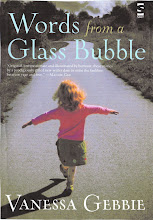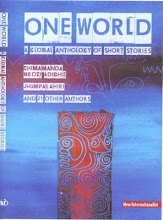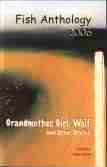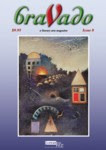Here you go:

This publication carries many short stories, and is described thus on Wikipedia: My Weekly is a magazine for women in the 45-and-over age bracket..... It tends to consist of short stories, reader contributions, knitting or sewing patterns, and celebrity gossip.
The same publisher produces this magazine:

Their webite has this to say:With a strong base of captivating fiction, a dash of crafts, a sprinkling of gardening and of course a good dose of tempting recipes, The People’s Friend is the perfect ingredient to brighten any woman’s day.
To appreciate the full flavour of ‘The Friend’, it’s best read in a comfy chair with a hot cup of tea and lots of time to spare.
And for comparison, here are two of the magazines that might be considered among the 'best' in a very different market.

From their website: Since 1953, The Paris Review has been at the vanguard of great literature, bringing superlative work by acclaimed and emerging writers to an international audience.
and
.
.
.
.
THE LONDON MAGAZINE

From their website: T.S.Eliot saw (The London Magazine) as ‘the magazine which will boldly assume the existence of a public interested in serious literature’.
Consistently on the pulse of the literary scene, The London Magazine is a meeting place for the day’s greatest minds.
Very different markets, I think. You cannot compare them. Each serves its purpose, and brings enjoyment to (I believe) different readers. I would doubt if, in the biographies of the writers in Paris Review, you would find that they also write for People's Friend. And vice versa.
Horses for courses. Chalk and Cheese.
And my own strategy for growth as a writer was not to seek criticism of my work from writers who want to focus on writing something entirely different themselves.
We all find our own best path. And those who do write for the women's magazines will probably get paid far better than those who restrict their writing to a less popular market.
In the end, we write what we want to read ourselves, don't we? A few writers may be very clever, able to be a Jack or Jill of all trades and write a bit of everything, well. I don't want to/could not do that.




.JPG)























7 comments:
I wasn't intending to compare My Weekly with the Paris Review. See my response on your other thread.
Regardless of any arguments around value judgements, I do agree that there is little point in inviting critique from outside your chosen genre/style. There's nothing more disheartening than having a literary piece challenged for its lack of happy ending. And I imagine a womag story deconstructed by a literary writer would be equally unhelpful and unwelcome.
exactly! thanks Sarah
Norton... you said My Weekly was the best fiction magazine on the market. All I have are your words.
Vanessa, I am that odd writer who has published in both kinds of markets. I've had stories in Woman's World and The Quarterly. I've even sometimes overlapped with the same story, publishing "The Dead Boy at Your Window" in The North American Review, Realms of Fantasy, and The Sun (the U.S. magazine, not the newspaper).
I think that in my case, a taste for the highbrow and the lowbrow has sometimes meant that I see story possibilities where others might not. I've even found some value in having my work evaluated by peers who don't do or understand the kind of writing I'm setting before them. Interpreting criticism and deciding what to do with it can be as creative an act as the writing itself.
I come to this discussion late, and I'm not coming to disagree, but only to observe that for some writers, there is indeed value in inviting critique from outside your own genre or style. You can discover surprising bridges between genres.
Rick DeMarinis wrote a wonderful literary story called "Romance: A Prose Villanelle" which not only adopts the villanelle to prose, but which relies on the writer's familiarity with formula romance to achieve its satisfying and funny effects.
Hello Bruce
Great to hear from you. I'm listening!
All I know is, I came to this writing game very late. I figured I had to have a strategy and stick to it. I might die tomorrow, you know?
My strategy was to write as well as I could, as fast as I could. And to do that I had to make some interesting choices.
I suppose I am also not interested in the slightest in reading romance, or kitchen sink dramas, or boy next door stories. I dont like stories with happy endings. I sent away once, in a moment of needing cash fast, to read the Peoples Friend guidelines. 'Happy endings' and 'no overt sexual activity' were among the rules.
I thought, why on earth not?? when I'm eighty, stuck in some facility on the outskirts, I will want to be reminded what fun sex is... not be expected to forget it.
Post a Comment